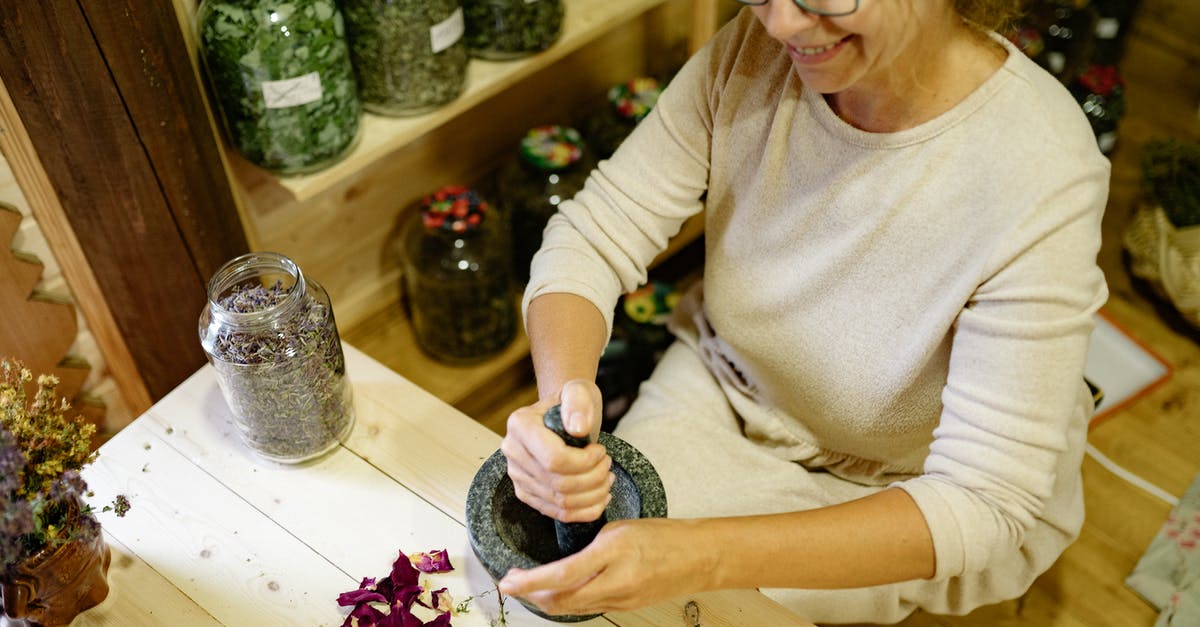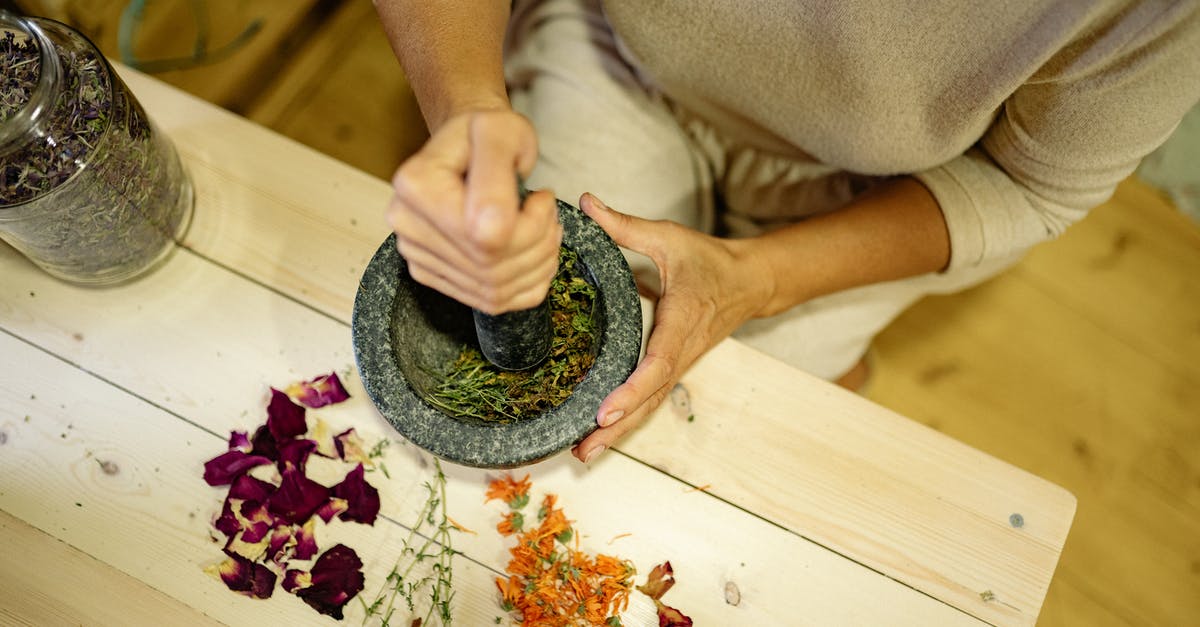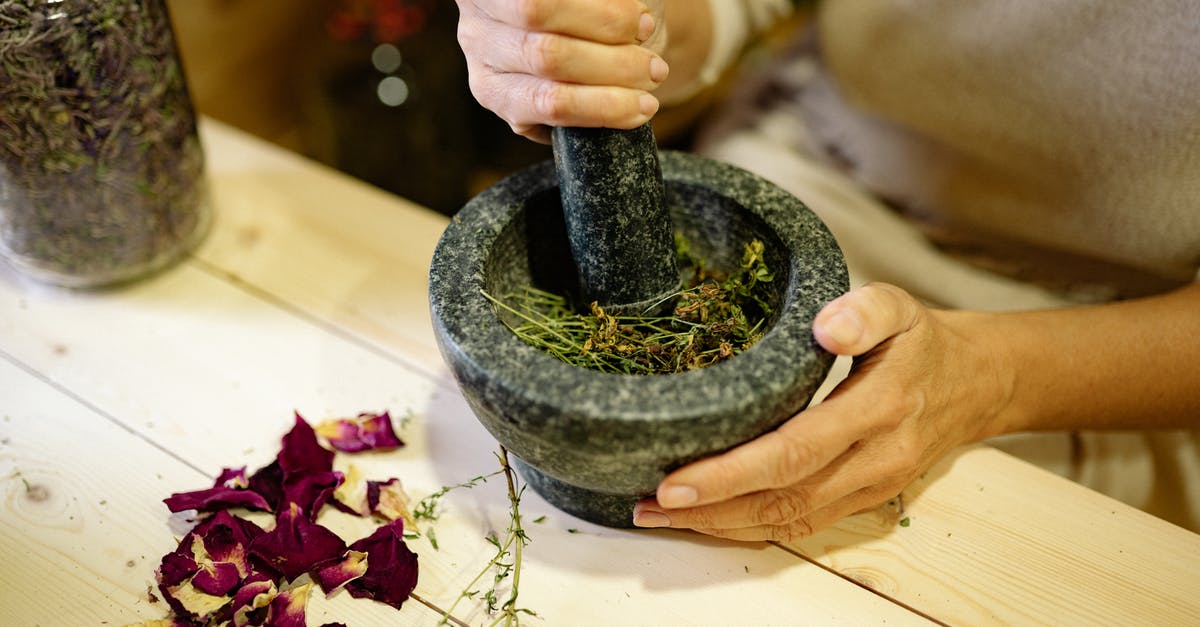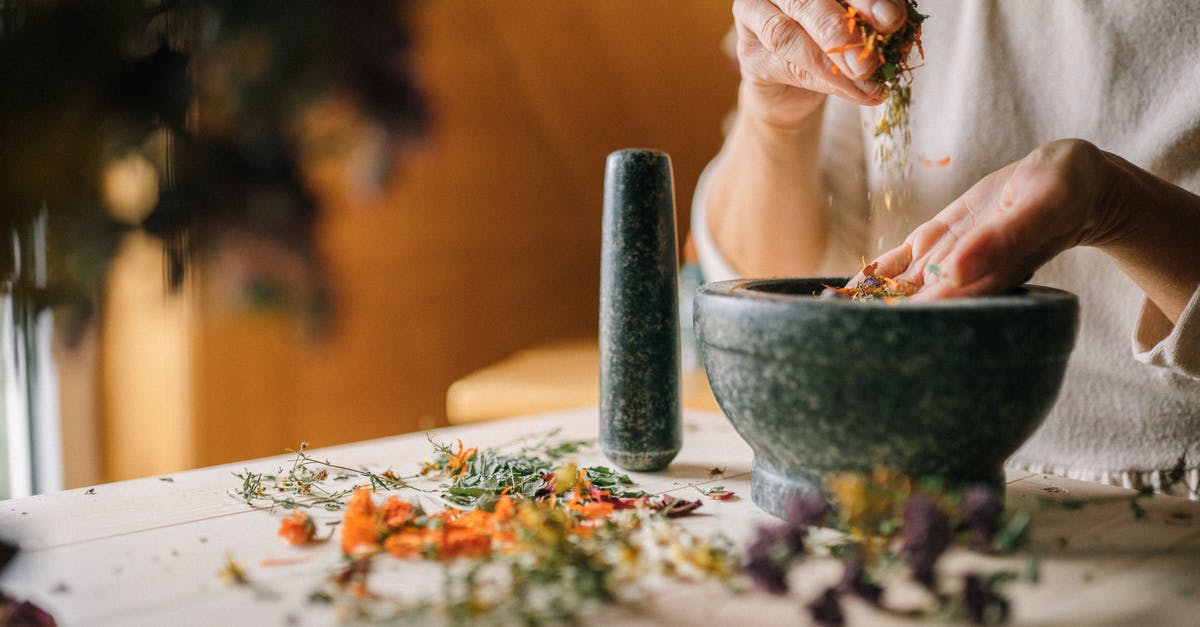Are there substantial benefits to grinding your own flour?

I've read that most of the nutrients of wheat are stripped for the sake of shelf life. Is this marketing propaganda or is there truth behind it? It was my impression that white flour (even fortified) is nowhere close to the original thing but whole grain flour is still pretty good.
- The grinders are pretty pricy and after that even buying large amounts of grain (if you can find it) doesn't ever appear to pay off. Am I mistaken?
- Are there any real benefits to doing it yourself (whether nutritional or not)?
- Does it taste as good? (Sorry, I know this question is opinion-oriented, but I'm curious)
Best Answer
You're very correct the grinders are pretty pricey. I believe we paid about $300 for ours.
There are a few good reasons for me to have a grinder. Whether they are good reasons for you is your call.
1- I can grind whatever I want. Right now I am using hard white wheat. Unbleached, hard, white wheat flour is more expensive than your run-of-the-mill flour and comes in annoyingly small bags. I also grind beans, quinoa, oats, etc.
2- I can control the fineness of the grind. This is a minor thing but it is nice for me to be able to experiment with the texture of the product. In practice I usually leave it on the same setting but it is finer than the flour I can purchase.
3- Wheat flour is very perishable. I go through a fair bit of flour. As much as 200 oz in a heavy week. In order to have enough wheat flour on hand for a couple weeks it would have to live in the freezer. I don't want to waste that much freezer space. Whole wheat berries last almost indefinitely.
4- I like the flavor better. It tastes fresher and more nutty. This may be imagined- I haven't done any double blind tests. I should do that.
5- Cost- I had to do some of the maths as I don't usually pay a lot of attention to this. King Arthur white wheat flour costs approximately $1.00 a lbs.
I buy 25lbs bags of bulk white wheat for $12-$15 or $0.50-$0.60 a pound. If I use around 10 lbs of flour a week (usually a little less, it varies) I am saving about $5 a week. If you don't have access to wheat that cheap or don't make that much bread then of course the savings will be less.
As for nutrition- I read all the time that the nutrients in whole wheat flour degrade very quickly. I'm not a chemist but those results seem plausible to me based on how quickly the flour itself degrades in quality.
Pictures about "Are there substantial benefits to grinding your own flour?"



Quick Answer about "Are there substantial benefits to grinding your own flour?"
The benefit of using freshly milled flour is the higher nutritional content and better flavor. Using freshly milled flour, regardless of if you've bought it, or milled it yourself at home takes a bit of getting used to.Is it worth it to mill your own flour?
But the most important reason to own a mill is this: flavor. Whole grain flours, because they contain the germ and its rancidity-prone oils, are highly perishable. Having your own mill means you can make a dough soon after the flour is milled to retain as much of the flavor of the grain as possible.Is it cheaper to grind own flour?
Grinding Your Own Grain Is Cheaper in the Long Run Un-ground whole grains, though, are almost always cheaper, especially if you are able to buy them in bulk. You can often find good-quality bulk grains at health food stores or possibly even from a local farmer, or you can find grains online .Does wheat lose nutrients after grinding?
Milling a whole grain does degrade the nutrients somewhat. (Although grinding it at home just before you bake it certainly minimizes those nutrient losses!) And grinding a whole grain into flour also makes it a bit easier to digest, meaning that it has a higher glycemic impact.What are the benefits of flour mill?
The flour mill is also useful in grinding not just wheat but also other grains like maize, rice, spices and nuts. It helps to save a lot of time and to grind wheat finely or coarsely according to individual requirements.Why should you grind your own flour? /Healthy with Happy
More answers regarding are there substantial benefits to grinding your own flour?
Answer 2
"Wholemeal" or "whole wheat" flour is mostly 100% whole wheat in most countries. They used to remove the "brush" though, but I suspect modern grinders take care of these now
As I understand it, when you grind your flour it may not be as good as commercially ground flour if your grinder causes the wheat to heat up. This will effect it's nutrition and shelf life
The source of the wheat is going to be the biggest taste changer. I have had flour from a local Dutch windmill using stone grinders etc, it had a great texture, but did not taste significantly different

Answer 3
A friend of mine has been experimenting with different kinds of rye bread for quite some time. He's come to grinding the rye flour himself. I've been tasting the bread for most of the time.
- The grinders are indeed expensive. Manual ones are cheaper, but it's really a lot of work to grind even a smallish amount of grain (I've tried). Off-the-shelf flour is so cheap that the grinder probably never pays off in that sense.
- Where I live, whole-grain rye flour isn't readily available in stores. Thus what you get by grinding yourself is certainly different, and in my opinion tastes better. The shelf life of whole-grain flour is relatively short, but that's no problem if you only grind what you use. I believe the scientific consensus is that whole-grain flour is more healthy than the standard stripped version (but I'm no expert).
- It tastes better. If you bake a lot, I'd say that's enough reason to start grinding.
However, having said that, I don't believe there's much difference in taste nor nutrients between off-the-shelf whole-grain flour and self-ground flour. I certainly wouldn't start grinding wheat myself, but I don't like wheat very much. At least here you can get whole-grain wheat flour easily from stores.
Answer 4
I would like to comment on this as well, as I grind my own flour because of cost savings.
We bought our Kitchenaid Flour grinder for quite cheap, and with a wedding gift card, it only cost us $20.
I grind my own wheat, because it is very cheap. A farmer gets about $6-7/32L 32L = bushel) of wheat kernels. This amounts to 2-3 times about of flour, so about 90L of flour. Flour weighs about 0.5g/mL, so about 45kg of flour. For 45kg of flour, I'd say $7 isn't such a bad price. As I work with farmers, I've never had to pay for wheat kernels, as a ziploc bag is pennies to them.
Ground whole wheat kernels taste very strongly like bran. I would not recommend using 100% whole kernels as you feel like you are eating a bran muffin. I always mix my whole kernel flour with white flour and a dash of whole wheat flour.
I would also just like to point out that there are many types of wheat. Here in western canada, we primarily grow Hard-Red spring Wheat. This signifies a high protein, and is better for bread. Any of the "Soft" Red/White Wheat, are low protein, and are better suited for pastries. We need a higher protein, to have a higher gluten content, as gluten is responsible for the bread being able to rise well. I would also like to point out that, the protein content often is variable amongst every field yet, so if you're asking a farmer for a bucket of wheat grain, I would recommend having at least 12% protein so your bread will rise.
If you would like to know more about wheat, I would recommend asking a farmer!
Sources: Stack Exchange - This article follows the attribution requirements of Stack Exchange and is licensed under CC BY-SA 3.0.
Images: Yan Krukov, Yan Krukov, Yan Krukov, Yan Krukov
